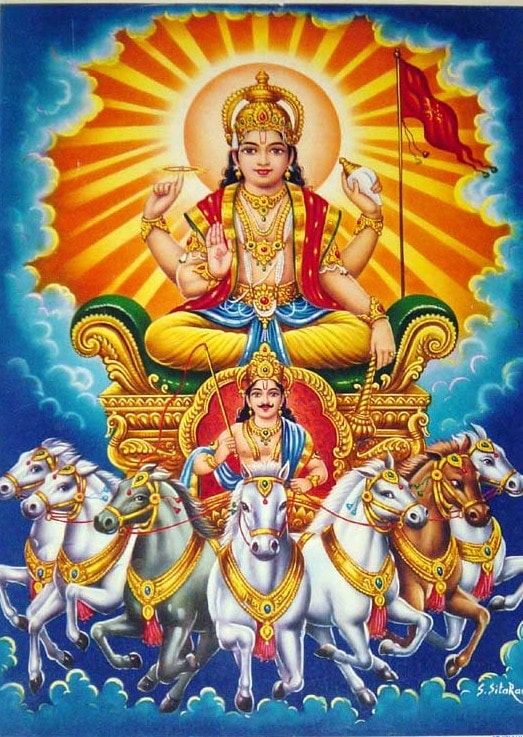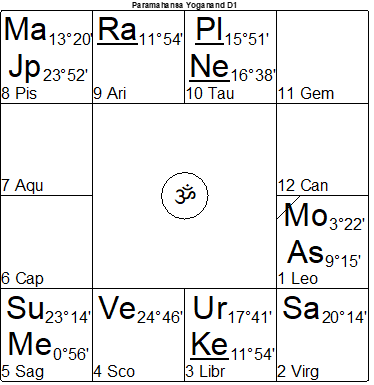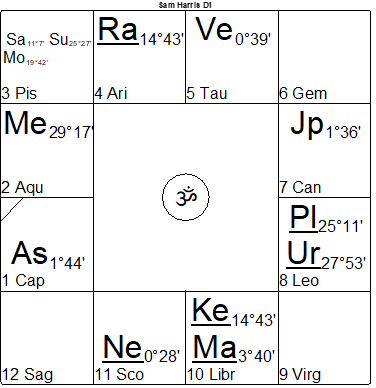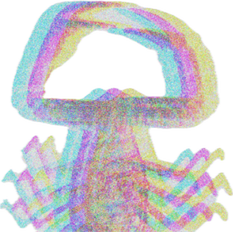Absolutely, yes - and no.
- The article explores the concept of free will and its relationship to astrology.
- It suggests that while we may not have complete freedom to choose, we still make choices that dictate our life's trajectory.
- It suggests that identifying with the ego limits our free will, but identifying with 'core subjectivity' grants absolute freedom.
- It emphasizes the importance of viewing life from a cosmic perspective and accepting the unfolding of events.
- It discusses the notion of a 'bigger part', often referred to as 'soul', that is running the show and aligning with all that is.
- It suggests that giving up the notion of free will can free us from feelings of guilt, shame, and regret.
- The article highlights the use of astrology timelines, such as the daśā technique in Indian astrology, for understanding circumstances and emotional environments.
- It references Paramahansa Yogananda's perspective on transcending the influence of the stars and aligning with the Creator.
- It suggests astrology can be used to navigate life events while simultaneously experiencing a sense of timelessness.
- It proposes that both mechanistic and idealistic perspectives can coexist and be complemented by astrology.
One of the first things you may ask when you see your life mapped out in an ‘astrology timeline’ is: “Do I have free will to choose?” Well, you cannot choose the weather, can you? Or how the tides turn? You may not even have a choice in how you react to what is unfolding. But you can view it from a different perspective. With a cosmic view, you can change how you see your life. And this may be all that’s needed to change its trajectory.
The choices you make based on what is unfolding dictate where you end up. Even if you don’t believe you have the freedom to choose absolutely anything, you still make choices. And even if everything that ever was, is, or will ever be, already exists in a cosmic sense, making decisions about your life is part of that, too.
Tantrik scholar Christopher ‘Hareesh’ Wallis writes in his article, Near Enemy #11: You can choose how to respond, “If you’re in a sailboat in the middle of the ocean, there’s only one little thing you can choose, which is the angle of your rudder… which makes no difference at all to your experience one minute from now, and very little difference one day from now or one week from now. But eventually, it makes all the difference in the world: it determines whether you make landfall in Australia or Siberia.”
When aware of the astrological weather, you know where you are on the vast ocean of your life. You realise there is a bigger picture and part of you that is on board with all that is. This ‘part’ is actually making it all happen, anyway.
As philosopher Bernardo Kastrup explains in his YouTube video, Analytic Idealism on Free Will (Ep 10), “If you identify with the ego, you have very little free will. However, if you identify with core subjectivity … then by definition you have absolute free will. Because core subjectivity is the lake where existence ripples.”
Kastrup goes on to explain, “There is no difference between free will and determinism at the cosmic level, because at the level of core subjectivity … the desire is the need. The need to do something is the same thing as the desire to do it. Free will is a philosophical red herring. My free choices are still determined, they’re just determined by me.”
The sense that all is as it should be, including your choices, brings a sense of calm whatever happens in our lives, whatever choices we have made or will ever make. Practically, if we know a period in our life is going to be ‘stormy’, we know to batten down the hatches and ride it out. At the very least, knowing when a certain period is ending brings an enormous sense of peace, no matter what we must face. We can take full advantage of the winds that are taking us out of choppy waters and to calmer seas.
'Free' Will
As the writer Yuval Noah Harari has stated in interviews, “We have a will, it’s just not free.” At least, it’s not free from our ego’s perspective. That may sound depressing, but when letting go of the idea of being free to choose absolutely anything, but it can actually make us happier. At least, that has been my experience. We don’t need to struggle to make things happen, things that we are not fully on board with.
This does not mean giving up choosing what we would consciously prefer. It actually gives us the freedom to make better choices. As with any spiritual truth, this might initially sound like a contradiction at first glance, but it is an absolute truth that there is a small part of us – the egoic part - that is not at all in control of what is happening, and a bigger part that is running the show.
One word to describe it is ‘soul’. In the Vedic tradition, it is represented by Surya, the solar deity, the bigger part running the show (pictured). When we tap into this, we are tapping into what is, what has always been and always will be; our full potential.
Only when we are at one with all that is can we speak of free will. Even when we seem to will something into being from an egoic perspective, what is more accurate is that we may have temporarily taken our attention from our egoic needs and identified with soul. Our ego then hijacks it and claims if for itself. We may proclaim, “I did that!” But all we did was get out of the way. We aligned with all that is. But actually, nothing happens; all is.
One of the biggest advantages of giving up the notion of free will from an egoic perspective is that it frees us of feelings of guilt and shame. The decisions we make cannot be free of an endless array of conscious and unconscious impressions. Realising this frees up all that energy that is otherwise wasted trying to figure out why certain things happen; why we did things we may otherwise regret, or regret things we did not.
If we give up the notion of free will, it does not mean our life is plain sailing. It does mean we can become who we were meant to be. And we don’t waste time wishing we were someone, or somewhere, else.
We may, at times, feel sad, angry, anxious, and stressed, but we don’t have to add further feelings of guilt, shame, and regret onto what we may perceive as especially negative. Chögyam Trungpa refers to this as “negative negativity” in his book, The Myth of Freedom and the Way of Meditation:
“Negative negativity refers to the philosophies and rationales we use to justify avoiding our own pain…This secondary, commenting kind of intelligence of double negativity is very cautious and cowardly as well as frivolous and emotional. It inhibits identification with the energy and intelligence of basic negativity.”
Without placing another layer of negativity, we can accept how our life is unfolding. Acceptance does not mean we cannot change. Having an astrology timeline means we are constantly changing, accepting, and then, changing, over and over again.
Resigning to our fate and thinking we have no say in how our life unfolds may be another initial reaction to viewing our timeline, but we can shift our identity from our egoic self to core subjectivity as we view it. We can engage with our timeless being while working with a timeline. In doing so, we don’t allow the current of life to beat us up.
Do we choose our thoughts? Our emotions? No. We witness our thoughts and emotions. They happen to us. And they are laid out in our astrology timeline, too.
One of the main predictive techniques used in Indian astrology, called daśā - a Sanskrit word that means ‘circumstance’ - is a timing technique that utilizes the Moon’s position from birth. The Sun shows our resources, the Sun signs reflecting our environment, while the Moon shows our emotional environment, our likes and dislikes; what we would like to happen, whether or not it does. Regardless of what is happening in our lives, how we feel about our lives is more important than what is unfolding. This is one reason the most prominent dasa is calculated from the Moon. It can sometimes show what someone wills, when aligning with soul, but most often it shows how one feels about what is happening.
Did Paramahansa Yogananda Outwit the Stars?
Paramahansa Yogananda wrote in a chapter of his Autobiography of a Yogi titled “Outwitting the Stars”, “Superstitious awe of astrology makes one an automaton, slavishly dependent on mechanical guidance. The wise man defeats his planets—which is to say, his past—by transferring his allegiance from the creation to the Creator. The more he realizes his unity with Spirit, the less he can be dominated by matter. The soul is ever-free; it is deathless because birthless. It cannot be regimented by stars.”
The words of Yogananda are a reminder of our true nature, beyond the stars. Yet Yogananda had his own life experiences here on earth, clearly reflected in his birth chart and timeline of events. In that way, you and I, are no different to Yogananda. And he is no different to you or I. Here is Paramahansa Yogananda’s birth chart with sidereal Leo rising.
Having Leo rising alone would have make him act (Leo rising sign) and feel (Moon was also rising in Leo) as if he were in control of his destiny. The fire-dominant signs, Aries, Leo, and Sagittarius, tend to approach life that way. That itself is mapped out in his birth chart. Did Yogananda outwit the stars? It’s probably more helpful to state Yogananda aligned with his ‘core subjectivity’ (Leo) and became one with the Creator; his Moon lined up with his soul’s expression in the Sun’s sign, Leo. We, too, can rise above our kārmik patterns, our life stories, mapped out in our birth charts.
I’ve read enough charts of those who felt they were somehow beyond karma yet were consulting me wondering why something was or was not happening in their life. Indeed, when someone has as hard time accepting their life being mapped out, it seems tragic to me because I know they are missing out on aligning with their full potential.
Sometimes, it may seem like a herculean task to reach for such a perspective if our mind is struggling to cope with certain life events. In that case, we can simply view the astrology map as a way to accept where we are until we are able to change our perspective. That doesn’t mean resigning ourselves to what is happening. It’s about trusting the process so we can shift our perspective. And that is all that’s needed to change our life’s trajectory. That shift, too, is mapped out in our timeline.
While there is a part of us all that is beyond karma, if we don’t acknowledge and accept our life experience as it is, we may compare ourselves to enlightened beings who seem to be in on something we are not. No one, at any point, is beyond karma from an egoic perspective. Yet everyone, at all times, can reach beyond their patterning, just as Yogananda took his identity “from the creation to the Creator.” And we can do the same with the aid of an astrology timeline.
Making Sense
Neuroscientist Sam Harris is probably one of the more prominent 'free will' antagonists in our modern era. Unlike Yogananda, he has the pragmatic Capricorn rising in his birth chart, a sign ruled by ‘doubting Thomas’, Saturn. Harris speaks a lot about free will, in that he doesn’t believe in it, on his Making Sense Podcast.
Sam Harris not believing in free will is part of the Creator’s will, too. Both Harris' and Yogananda's perspectives are true on some level, and holding both views is possible. Actually, it’s probably more helpful to hold both perspectives when studying astrology, as it allows us to use astrology scientifically, timing events etc., while also transcending this space and time altogether.
Dancing between a mechanist view of the universe (Harris) and of Being (Yogananda), we too can find a way to settle into that which imbues both perspectives.
We can use astrology timelines to help us navigate our life, while, at the same time, experiencing our ‘timelessless’. That way, we don’t get tripped up on life events when looking at the stars.
Om Tat Sat
References
Wallis, C. “Near Enemy #11: You can choose how to respond”, Hareesh [web blog], 30 August 2019, https://hareesh.org/blog/2019/8/30/near-enemy-11-you-can-choose-how-to-respond (accessed 14 June 2022).
www.youtube.com. (n.d.). Analytic Idealism on Free Will (Ep 10) - Analytic Idealism Course - Bernardo Kastrup. [online] Available at: https://www.youtube.com/watch?v=EADTGaBSlos [Accessed 16 May 2023].
Chögyam Trungpa, Baker, J. and Casper, M. (2005). The Myth of Freedom and the Way of Meditation. Boston: Shambhala.
Chart Data
Paramahansa Yogananda, January 5, 1893; 20:38 IST; Gorakhpur, India, (83° E 22’, 26° N 45’); Rodden Rating C; accuracy in question.
Sam Harris, April 9, 1967; 01:34 PST; Los Angeles, CA, USA, (118° W 14’, 34° N 3’); Rodden Rating AA; BC/BR in hand; Collector: Starkman.



